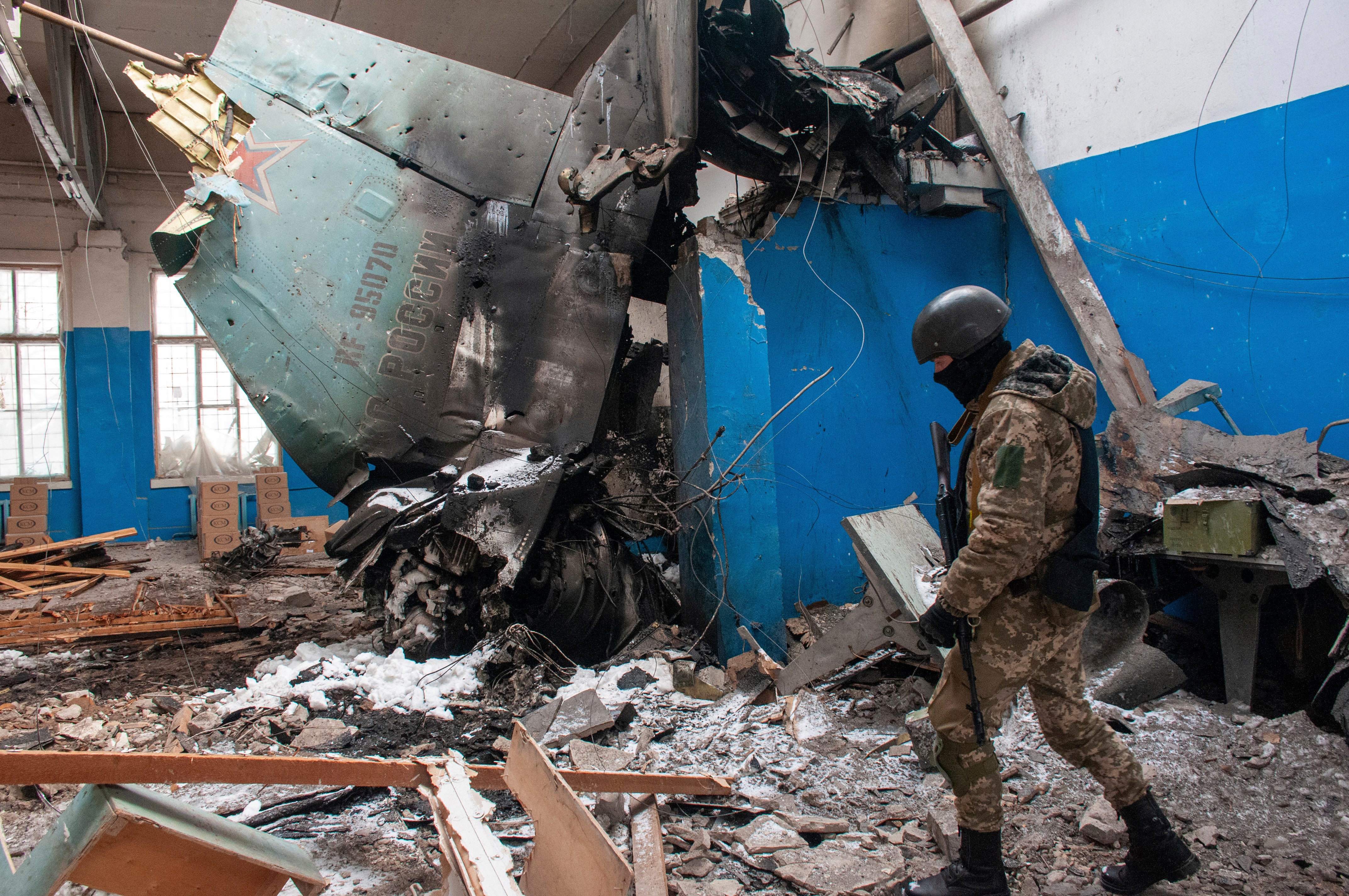Service personnel prohibited from travelling to Ukraine, MoD says
The MoD statement comes amid reports that soldiers may have gone to join the fight in Ukraine.

Your support helps us to tell the story
From reproductive rights to climate change to Big Tech, The Independent is on the ground when the story is developing. Whether it's investigating the financials of Elon Musk's pro-Trump PAC or producing our latest documentary, 'The A Word', which shines a light on the American women fighting for reproductive rights, we know how important it is to parse out the facts from the messaging.
At such a critical moment in US history, we need reporters on the ground. Your donation allows us to keep sending journalists to speak to both sides of the story.
The Independent is trusted by Americans across the entire political spectrum. And unlike many other quality news outlets, we choose not to lock Americans out of our reporting and analysis with paywalls. We believe quality journalism should be available to everyone, paid for by those who can afford it.
Your support makes all the difference.The Ministry of Defence has said that service personnel are banned from travelling to Ukraine amid reports that British soldiers have gone absent without leave to fight against Russia.
The statement followed reports that a 19 year-old Coldstream Guardsman is among as many as four missing British soldiers feared to have travelled to Ukraine following the Russian invasion.
A Ministry of Defence spokesman added: “All service personnel are prohibited from travelling to Ukraine until further notice.
“This applies whether the service person is on leave or not. Personnel travelling to Ukraine will face disciplinary and administrative consequences.”
All Service Personnel are prohibited from travelling to Ukraine until further notice. This applies whether the Service Person is on leave or not. Personnel travelling to Ukraine will face disciplinary and administrative consequences.
The MoD added it would not comment on specific cases.
According to The Sun, a teenage Coldstream Guardsman, who was based in Windsor barracks, wrote a goodbye letter to his parents and bought a ticket to Poland over the weekend with the aim of crossing into Ukraine.
All travel to Ukraine is banned under official UK military advice.
It states that going to Ukraine to fight, or to assist others engaged in the conflict, may be against the law and could lead to prosecution.
Another issue is that the UK has limited consular support in Ukraine, and is unlikely to be able to offer assistance to anyone in the country.
It is understood that UK defence chiefs are keenly aware of the desire among people back home who want to help the Ukrainians after the Russian invasion, but the only support they can provide is defensive in nature.
The UK is working with its allies to provide a range of support to Ukraine, including to enhance that nation’s defence capability.
Defence Secretary Ben Wallace, who served in the Scots Guards, has previously urged Britons not to travel to Ukraine to join the fighting as he said the “very dangerous” situation could lead to them being killed.
Mr Wallace has said he does not “want to see British people killed any more than I want to see Ukrainians” dying after Foreign Secretary Liz Truss earlier said she would “absolutely” support British nationals who chose to go to help fight against the Russian invasion.
Downing Street later effectively contradicted Ms Truss, as Prime Minister Boris Johnson’s official spokesman said: “We think the best way we can help Ukraine right now is by ensuring Putin fails.
“There are a number of ways Brits can show their support for that, and the Ukrainian embassy in London is putting out information about how British people can support.
“We fully recognise the strength of feeling about British people wanting to support the Ukrainians following the Russian invasion. There’s advice up on travelling to Ukraine, we currently advise against travel to Ukraine.”